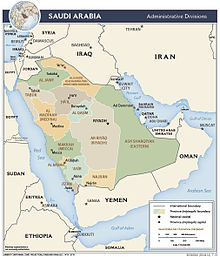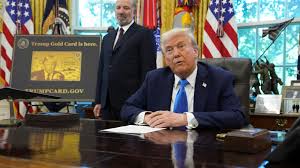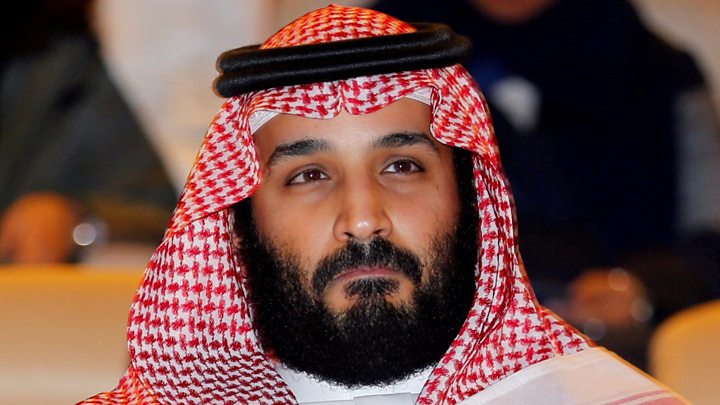A New Kind of Saud
February 26, 2018
Mohammed bin Salman, or MBS for short, was just thirty-two when he became the Crown Prince, heir apparent, to the Saudi throne, deposing Mohammed bin Nayef. He is seen as a welcoming progressive in his land, and this is well deserved. MBS has introduced reforms such as letting women drive and the push to diversify the Saudi economy away from just being centered around petroleum exports. He is also seen as an ally of America, seeming grateful to the western nation in a Washington Post quote claiming, “We have been influenced by you in the U.S a lot…Without this cultural nudge, we would have ended up like North Korea.” It is important to pay attention to MBS, as Americans, as well as to look at the Middle Eastern region for reasons other than war, because in the end, however MBS’ rule, or lack of rule thereof, takes shape will affect the future of world diplomacy and history.
MBS is popular among the Saudi population, much of which is made up of young adults, and does not look like he is slowing down at all with his visions and reforms. Alongside his reforms, MBS promised to go after corruption in Saudi society, and it seems to the Saudi people that he delivered his promise when, according to The New York Times, he issued the arrests many Saudi princes and businessmen. The reigning king, Salman of Saudi Arabia, supports the Crown Prince’s actions. The anti-corruption campaign aims at ending high government spending connected to corruption and to recoup the majority of the money lost due to corruption. However, many people also wonder if this anti-corruption campaign could be a way for MBS to consolidate his power by showing members of the Saudi royal family who’s in charge, and a way to curb the power of businessmen in Saudi Arabia.
MBS also faces conflict with the ruling clerics of Saudi Arabia, who preach the conservative sect of Islam called Wahhabism. Historically, the clerics of Saudi Arabia are the ones who give the monarchs the legitimacy to rule, claiming divine rule from God. In return, the royal family of Saudi Arabia allows the clerics to hold high power in Saudi society, as well as enforce the conservative Islam sect throughout the nation. However, according to The New York Times, MBS is taking away the power that the clerics have held for decades as he detains many of them in an effort to consolidate more power. In addition to this, MBS has also taken away the right of the religious police in Saudi Arabia to detain and arrest citizens. In his actions, MBS is not actively seeking for the destruction of religion in his country. Rather, he’s looking to expand it while shaping how religion controls Saudi culture and society in more moderate terms.
Women have been gradually gaining more and more rights and are starting to be given the same opportunities as the rest of the Saudi population. This movement started in the late twentieth century when women were finally allowed to receive education, and now, it has extended to women being allowed to vote and be elected, to drive, and to carry their own identifications. It has also provided for the legal termination of forced marriages.
I think it is profound and exciting that women are being guaranteed human rights and are starting to be treated as equals in Saudi society, and I think that, with MBS in power, women will gain even more rights and freedoms. However, there is still a long way to go with regard to how women are treated in Middle Eastern culture.
Mohammed bin Salman is the promising face of a new era for Saudi Arabia, and perhaps the Middle East as well. If Saudi Arabia takes the road to reform and changes what its society has been for three-hundred years now, the whole region and the whole world will face consequences, good and bad. MBS is moving more power into the monarchy, and away from the anchors of religion in the Saudi society. Moving towards secularization in any nation is no easy task, and large hurdles will either be pushed through or ultimately end the movement. At the moment, I see two different outcomes from religious reforms. One, Saudi Arabia loses the tremendous authority in the region that it has controlled for decades now after sprawling into domestic unrest and conflict between its neighbors due to combating religious views. Or two, Saudi Arabia becomes the major Muslim force in the Middle East pushing for reform in religion and influences the rest of the region to follow its path.
To add on, if Saudi Arabia does transform into a more moderate society, the country’s relationship will solidify with America
While Mohammed bin Salman enlarges his own power as Crown Prince, readying himself to become king, his reforms grab the heart of his nation, reaching from the economy to religion, and ultimately, he may be remembered as one of the most influential leaders of Saudi Arabia. Only time will tell.

















































































































































